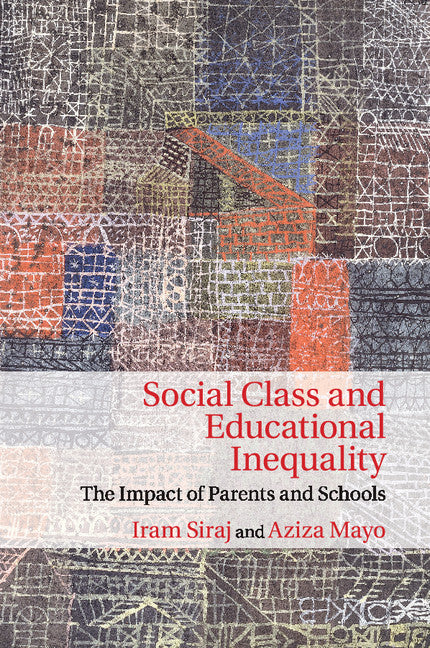Freshly Printed - allow 8 days lead
Couldn't load pickup availability
Social Class and Educational Inequality
The Impact of Parents and Schools
This book examines the impact that parents and schools have on disadvantaged children who perform against the odds.
Iram Siraj (Author), Aziza Mayo (Author)
9781107562301, Cambridge University Press
Paperback / softback, published 1 October 2015
332 pages, 4 b/w illus. 2 tables
23 x 15.3 x 2 cm, 0.45 kg
'Social Class and Educational Inequality is well worth reading. It arrives at a time when we need to bring parenting practices and schools back into the post-modern debate about children's educational achievement. The authors have done substantial research and the book is rich with mixed data sets and empirical literatures that critically explain the major issues it examines.' Gbenga Emmanuel Afolayan, Global Education Review
Social class is often seen as an intractable barrier to success, yet a number of children from disadvantaged backgrounds still manage to show resilience and succeed against the odds. This book presents the findings from fifty Child and Family Case Studies (CFCS) conducted with 13-16 year olds. The authors look specifically at the roles that people and experiences - at home, in schools and in the wider community - have played in the learning life-courses of these children; how these factors have affected their achievement; and explanations and meanings given by respondents to the unique characteristics, experiences and events in their lives. Featuring the voices of real parents and children, and backed up by a decade of quantitative data, this is a compelling record that will help readers to understand the complex nature of social disadvantage and the interplay between risk and protective factors in homes and schools that can make for a transformational educational experience.
1. Child and Family Case Studies in the context of the EPPSE study
2. Studying learning life-courses
3. Methods and sample of the Child and Family Case Studies
4. Cultural repertoires of childrearing across and within social classes
5. Children as active agents of their own learning
6. Powerful parenting and home learning
7. Parenting towards higher aspirations
8. Inspiring success in the early years and school environment
9. Gateways to enhanced social, cultural and emotional capital
10. Concluding discussion: promoting agency and advocacy.
Subject Areas: Educational psychology [JNC], Psychology [JM]


